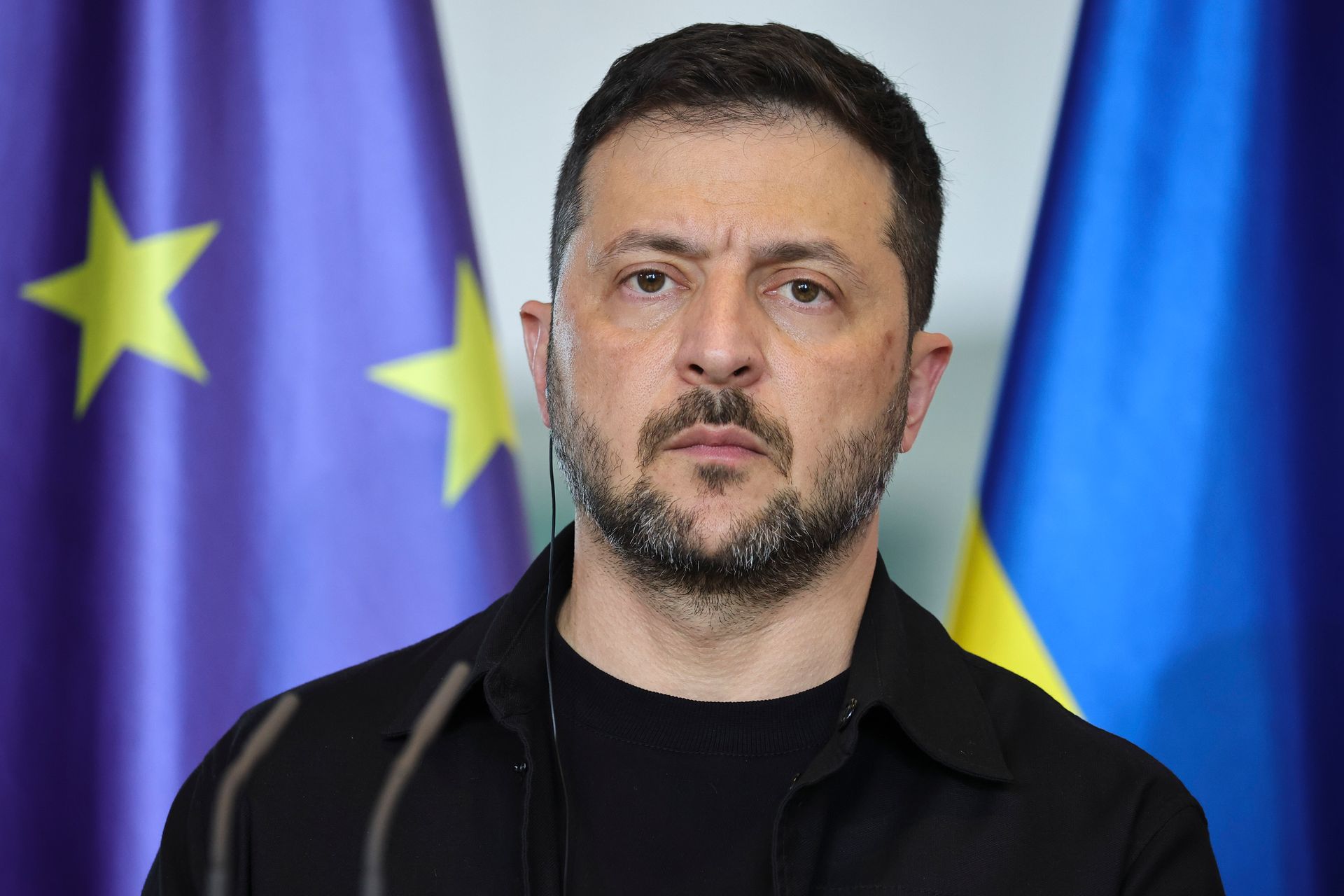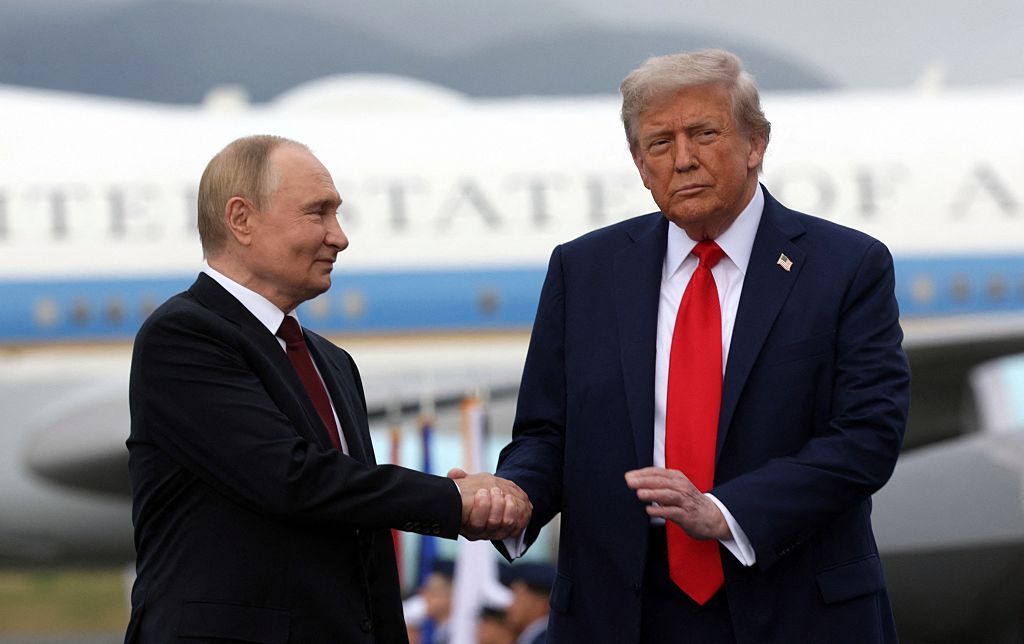'We could reach an agreement that could deter any future aggression against Ukraine,' Trump tells European leaders

Editor's note: This is a developing story and is being updated.
Following his talks with President Volodymyr Zelensky, U.S. President Donald Trump said on Aug. 18 that he expects progress on Ukraine’s security guarantees to be finalized today.
Speaking in the East Room alongside Zelensky and a number of European leaders, Trump added that: "(W)e will come to a resolution today, I think, on almost everything, including probably the security." The presence of the European allies was significant, as they had sought to reaffirm Trump’s full support for Ukraine after his recent summit with Russian President Vladimir Putin, which the U.S. leader described as "very warm."
While publicly praising Trump for his efforts to end the war, the European leaders—including European Commission President Ursula von der Leyen, British Prime Minister Keir Starmer, Finnish President Alexander Stubb, French President Emmanuel Macron, Italian Prime Minister Giorgia Meloni, German Chancellor Friedrich Merz, and NATO Secretary-General Mark Rutte—also put forward a more nuanced argument. This was a concept Trump had at times resisted: that true peace must be built on a foundation of supporting Ukraine.
Italian Prime Minister Giorgia Meloni emphasized this point, telling Trump: "If we want to reach peace and if we want to guarantee justice, we have to do it united." She added, "You can obviously count on Italy as it was from the beginning. We are on the side of Ukraine and we do absolutely support your efforts towards peace."
Finnish President Alexander Stubb reinforced the message, adding shortly afterward that "it’s team Europe and team United States helping Ukraine."
Elaborating on his vision for a deal, Trump said that the recent Alaska summit reinforced his belief that "while difficult pieces were then reached – and I believe that in a very significant step – President Putin agreed that Russia would accept security guarantees for Ukraine, and this is one of the key points that we need to consider." He also stressed that "collectively, we can reach an agreement that would deter any future aggression against Ukraine."
In a show of support for the proposal, U.K. Prime Minister Keir Starmer called the meeting a potential "historic step" for both Ukrainian and broader European security. Starmer confirmed that Trump’s proposal for "Article-5 style" security guarantees aligns with the work that Ukraine's main European allies, known as the "Coalition of the Willing," have been undertaking for months.
He added that the coalition is "prepared to step up to the plate" when it comes to guaranteeing Ukraine's security.
German Chancellor Friedrich Merz stressed the need for an immediate ceasefire as a condition for future negotiations: "I can't imagine that the next meeting would take place without a ceasefire."
Ukrainian and European officials have repeatedly called for a complete cessation of hostilities as a necessary precondition for good-faith peace negotiations with Russia. However, the Kremlin has consistently rejected these demands, insisting instead that Ukraine first make extreme concessions, such as disbanding its army and refusing to accept foreign military aid.
Speaking alongside other European leaders on Aug. 18, Merz added that the credibility of the peace efforts depends on a ceasefire taking hold before more serious talks begin: "Let's try to put pressure on Russia, because the credibility of these efforts we are undertaking today are depending on at least a ceasefire from the beginning of the serious negotiations from next step on."
In response, Trump pushed back on the idea of a prerequisite ceasefire, citing his past experience in settling conflicts. He responded, "Well, we're going to let the President go over and talk to the President, and we'll see how that works out." Trump then highlighted that in the six wars he claims to have settled, a ceasefire was not a necessary first step.
"I haven't had a ceasefire. We just got into negotiations... So if we can do the ceasefire, great. And if we don't do a ceasefire – because many other points were given to us. Many, many points were given to us," Trump added.
Security guarantees will consist of a strong Ukrainian army and commitments from Ukraine's allies in the "Coalition of the Willing," Macron said alongside Trump and other European leaders.
"We've worked very hard during the past few years to have a peace which is a robust and a long-standing peace. This is why the idea of a trilateral meeting is very important, because this is the only way to fix it."
Macron noted all of Europe is "united" with Ukraine and is ready to provide security guarantees to ensure security for the continent.
A "truce or a ceasefire" is necessary to be able to hold a trilateral meeting, he said, joining his European counterparts in maintaining the position that a ceasefire to stop Russia's war against Ukraine is still necessary.
After meeting with Putin on Aug. 15 and Zelensky on Aug. 18, Trump said he would like to host a bilateral meeting between the two leaders, followed by a trilateral meeting that he would join.
"Europeans are very lucid about the fact that they have their fair share in the security guarantees for Ukraine, but their own security is clearly at stake in this situation," Macron said.












